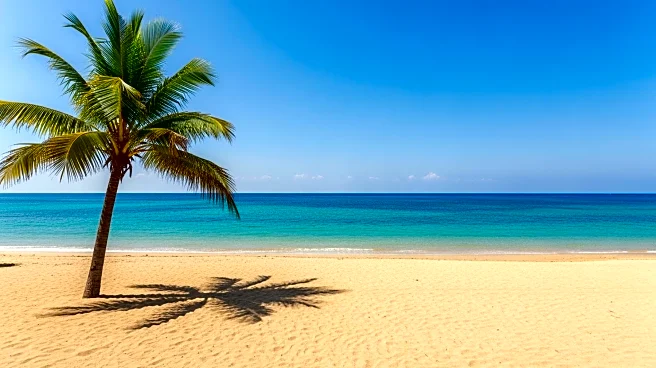What's Happening?
The Indonesian island of Lombok is undergoing significant changes as the government aims to transform it into a major tourist destination akin to Bali. This initiative, referred to as 'Bali-fication,'
involves the development of resorts, cafes, and a racetrack in Mandalika, the designated heart of the new tourist hub. While this development promises economic growth, it has also led to the eviction of local families and raised concerns about cultural and environmental impacts.
Why It's Important?
The transformation of Lombok into a tourist hotspot has significant implications for the local economy and community. While it offers opportunities for economic development and job creation, it also poses challenges such as displacement of residents and potential loss of cultural identity. The situation highlights the broader issue of balancing tourism growth with the preservation of local communities and environments.
What's Next?
As development continues, stakeholders including local residents, government officials, and investors will need to address the social and environmental concerns raised by the rapid changes. There may be increased calls for sustainable tourism practices and fair compensation for those affected by the development. The outcome of these efforts could serve as a model for other regions facing similar challenges.
Beyond the Headlines
The 'Bali-fication' of Lombok raises ethical questions about the rights of local communities in the face of large-scale tourism projects. It also prompts a reevaluation of what constitutes sustainable tourism and how it can be achieved without compromising the well-being of local populations.









